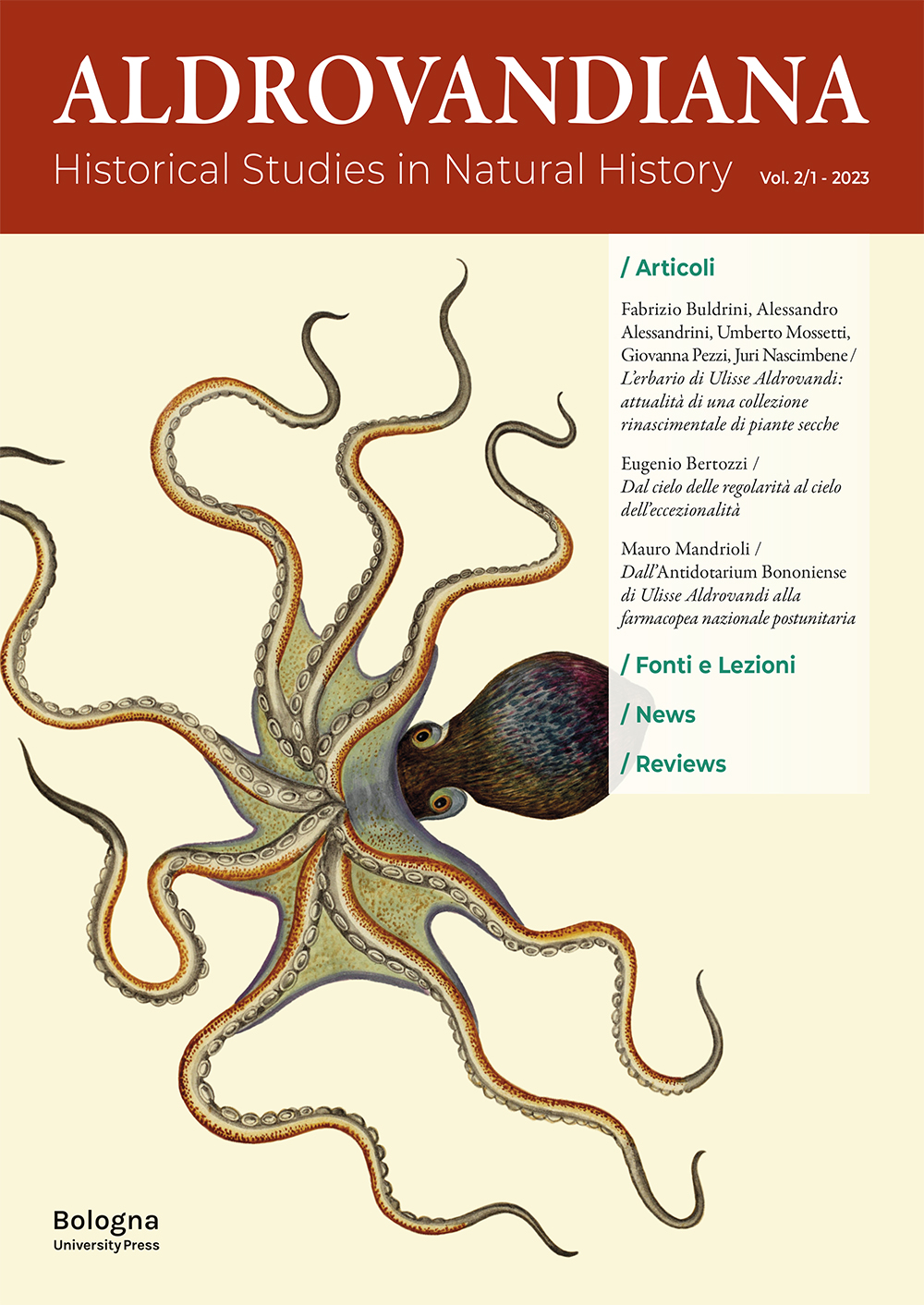Dal cielo delle regolarità al cielo dell’eccezionalità: i mostri celesti di Ulisse Aldrovandi
Published 2023-07-04
How to Cite
Copyright (c) 2023 Eugenio Bertozzi

This work is licensed under a Creative Commons Attribution 4.0 International License.
Abstract
Celestial monsters are the subject of the last chapter of Ulisse Alrdovandi’s Monstrorum Historia, a volume published in 1642, almost forty years after naturalist’s death. This work will focus particular attention on comets, the celestial monster par excellence. The analysis that follows will highlight the role of scientific illustrations, which were valorized in Aldrovandi’s work by means of their connection to ancient Greek and Roman knowledge. Furthermore, a close comparison between key exemplars of Aldrovandi’s Monstrorum Historia and the well-known Sidereus Nuncius of Galileo Galilei published in 1610, will allow us to demonstrate how, barely nine years after Galileo’s sentencing in 1633, iconographic elements of the Scientific Revolution – such as the telescope – were integrated by Aldrovandi’s successors with the aim of constantly updating that work. The present analysis argues, moreover, that during the first half of the seventeenth century, the sky – already transformed into a laboratory of privileged observation in a period of transition towards modern science by figures like Copernicus, Kepler, and Galileo – could still be scrutinized alternative aims, in search of rare and exceptional phenomena: monsters.
